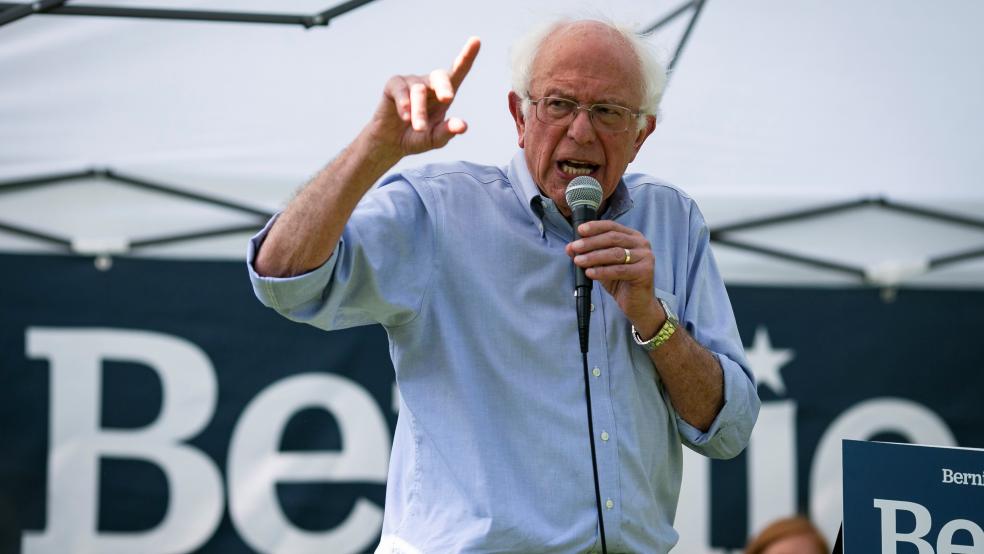Richard Rubin of The Wall Street Journal confirmed on Friday what you probably already knew: Bernie Sanders is proposing some seriously large tax increases.
How large? Rubin says that Sanders is talking about tax hikes “on a scale not seen since World War II,” when the staggering cost of saving the world from fascism prompted the federal government to extend the income tax to the middle class, roughly doubling the federal tax burden. While federal tax revenues were 9.9% of gross domestic product in 1942, they had risen to 20.5% by 1944.
Sanders’ tax plan would raise the overall tax rate as a share of GDP by about the same amount, from the current average of 17.4% expected over the next 10 years to a bit more than 28%. “His proposed tax increases top $30 trillion over a decade,” Rubin says. “That is more than 10% of gross domestic product and at least a 60% increase in taxes over what would happen otherwise.”
That would bring an end to the country’s status as a developed country with unusually low tax rates – and the wealthy would feel the biggest bite.
“Mr. Sanders’s combination of taxes on wealth, income, financial transactions, corporate profits, payrolls, estates and capital gains would hit rich Americans from every direction,” Rubin says. “If Congress were to pass all his plans, the total U.S. tax burden—including federal, state and local taxes—would resemble Canada’s or Germany’s rather than being near the bottom of the pack of rich nations.”




